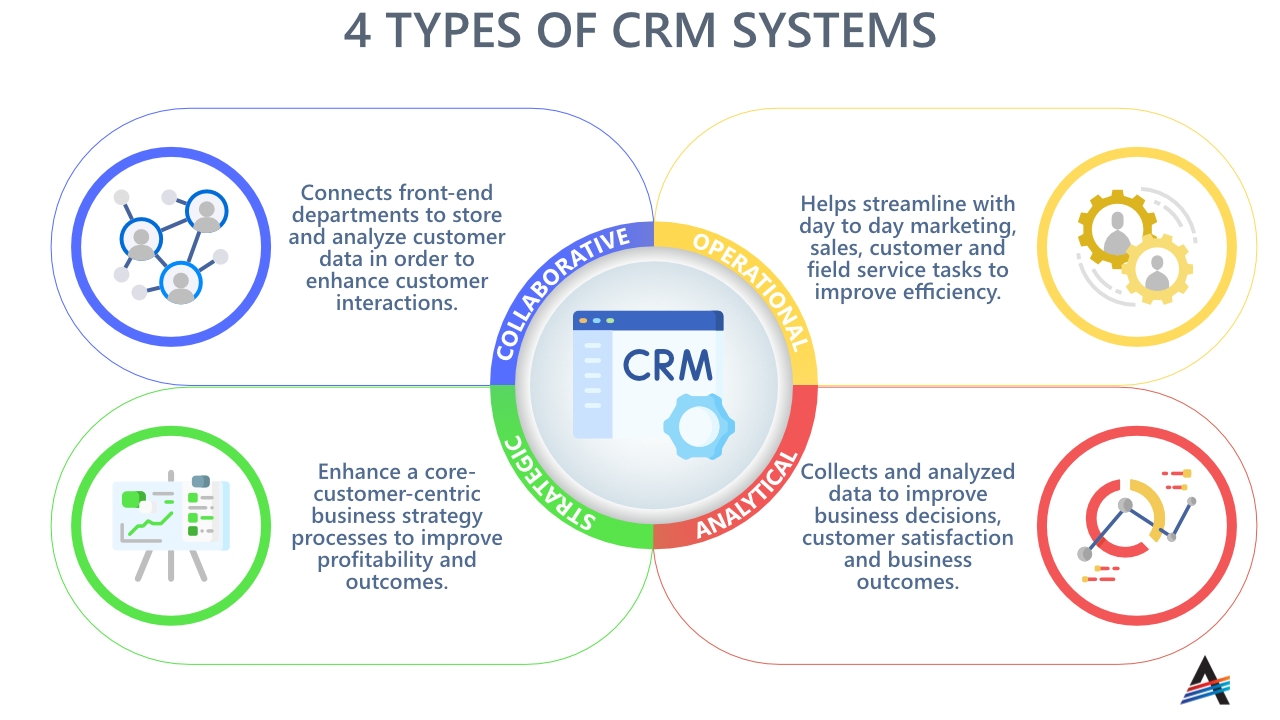Customer Relationship Management (CRM) systems are used by various businesses. They help manage interactions with customers, streamline processes, and improve profitability.
In today’s competitive market, understanding and maintaining good relationships with customers is crucial. CRMs are powerful tools that aid businesses in managing these relationships effectively. From small startups to large enterprises, many different types of businesses benefit from using CRMs.
These systems offer valuable insights and help automate tasks, leading to better customer satisfaction and increased efficiency. Whether you are in retail, healthcare, or finance, a CRM can be an essential part of your business strategy. Let’s explore the various types of businesses that utilize CRMs and how they leverage these systems to their advantage.

Credit: www.linkedin.com
Overview of CRM Software?
Customer Relationship Management (CRM) systems have revolutionized how businesses manage interactions. From small businesses to large enterprises, CRMs streamline processes, enhance customer satisfaction, and drive growth. Understanding CRMs is vital for any business looking to improve efficiency and communication.
What Is A CRM?
A CRM is a tool that helps businesses manage their customer data. It stores information such as contact details, purchase history, and communication logs. This data helps businesses understand customer needs and preferences. CRMs also automate tasks like sending follow-up emails and scheduling appointments.
Importance Of CRM
CRMs improve customer service by providing detailed customer information. This helps businesses respond quickly and accurately to inquiries. CRMs also enhance collaboration among team members. Everyone can access the same customer information, which reduces misunderstandings.
Using a CRM can lead to higher sales. It helps businesses track leads and follow up consistently. CRMs also provide insights through reports and analytics. Businesses can identify trends and make informed decisions.
Small Businesses
Small Businesses often face unique challenges. They have limited resources and need to maximize efficiency. Customer Relationship Management (CRM) systems can help small businesses manage these challenges. CRMs organize customer data, streamline processes, and enhance customer service. This can lead to increased sales and improved customer retention.
Benefits For Small Businesses
Small businesses can gain many benefits from using a CRM:
- Centralized Data: All customer information in one place. No need to search through emails or spreadsheets.
- Improved Customer Service: Quick access to customer history and preferences. This helps in providing personalized service.
- Better Sales Management: Track leads, opportunities, and sales performance. Helps in making informed decisions.
- Automation: Automate repetitive tasks. Save time and reduce errors.
- Enhanced Communication: Keep track of interactions with customers. Ensure timely follow-ups and consistent communication.
Popular CRM Options
Several CRM options are well-suited for small businesses:
| CRM Name | Features | Price |
|---|---|---|
| HubSpot CRM | Contact management, email tracking, and lead generation | Free |
| Zoho CRM | Sales automation, analytics, and customer support | Starts at $12/month |
| Pipedrive | Pipeline management, email integration, and reporting | Starts at $15/month |
| Salesforce Essentials | Lead management, opportunity tracking, and dashboards | Starts at $25/month |
Choosing the right CRM depends on your business needs. Consider the size of your team, your budget, and the features you need.
E-commerce Companies
E-commerce companies thrive on customer relationships. They need to manage a vast amount of customer data. A CRM (Customer Relationship Management) system helps them achieve this efficiently. CRMs offer various tools to enhance the customer experience and streamline operations.
Enhancing Customer Experience
E-commerce companies need to provide a seamless shopping experience. A CRM helps in personalizing interactions with customers. Personalized recommendations and targeted emails improve customer satisfaction. CRMs also track customer behavior and purchase history. This data helps in understanding customer preferences better.
Better customer service is another benefit. CRMs store customer queries and complaints. This allows support teams to respond quickly. Customers appreciate quick and efficient service. Happy customers are more likely to return and make repeat purchases.
CRM Tools For E-commerce
Several CRM tools cater specifically to e-commerce companies. These tools integrate with online stores and automate sales processes. They also help in managing inventory and tracking orders. Popular CRM tools include Salesforce, HubSpot, and Zoho CRM. These tools offer features like email marketing, lead management, and customer segmentation.
Salesforce offers robust analytics and reporting features. HubSpot provides a free CRM option with essential tools. Zoho CRM is known for its customization options. Each tool has unique features suitable for different business needs. Choosing the right CRM depends on the size and requirements of the e-commerce business.

Credit: nethunt.com
Real Estate Firms
Real estate firms rely heavily on maintaining good relationships and managing a vast inventory of properties. Customer Relationship Management (CRM) systems are indispensable tools for these firms. CRMs help in organizing client data, tracking property listings, and ensuring smooth communication.
Managing Client Relationships
Real estate firms need to build strong relationships with clients. CRMs store client details and communication history. Agents can quickly access past interactions and preferences. This helps in providing personalized service to clients. The client feels valued and understood. This leads to higher satisfaction and loyalty.
Tracking Property Listings
Real estate firms handle numerous property listings. CRMs help in organizing these listings efficiently. Agents can easily update property details and availability. They can also track which properties have been shown to which clients. This ensures that no property is overlooked. The firm can also generate reports on property performance. This data helps in making informed decisions.
Marketing Agencies
Marketing agencies often rely on Customer Relationship Management (CRM) systems to streamline their operations. These tools help them manage clients, track campaigns, and analyze data effectively. CRMs enhance the efficiency of marketing agencies, making their work more organized and productive.
Campaign Management
Managing campaigns can be complex. CRMs simplify this process. They allow agencies to plan, execute, and monitor campaigns from one platform. Teams can set goals, assign tasks, and track progress easily. This organized approach ensures campaigns run smoothly. It also helps in meeting deadlines and achieving targets.
Analyzing Client Data
Understanding client data is crucial for marketing success. CRMs gather and analyze this data efficiently. Agencies can view client interactions, preferences, and feedback in one place. This insight helps in creating personalized marketing strategies. It also aids in making informed decisions and improving client satisfaction.

Credit: adynamics.com.my
Healthcare Providers
Healthcare providers need efficient tools to manage patient relationships. Customer Relationship Management (CRM) systems are essential for improving patient care and operational efficiency. They help healthcare professionals manage patient data, appointments, and interactions. Let’s explore how CRMs benefit healthcare providers through patient management and compliance and security.
Patient Management
Effective patient management is crucial for healthcare providers. CRMs allow them to store and access patient information quickly. This includes medical history, appointment schedules, and treatment plans.
With a CRM, healthcare providers can:
- Track patient progress over time.
- Send appointment reminders to reduce no-shows.
- Provide personalized care based on patient history.
CRMs also help in coordinating care among different departments. This ensures that every patient receives consistent and high-quality treatment.
Compliance And Security
Compliance and security are critical in healthcare. CRMs assist in maintaining compliance with regulations such as HIPAA. They ensure that patient data is stored securely and accessed only by authorized personnel.
Key features of CRMs for compliance and security include:
| Feature | Benefit |
|---|---|
| Data Encryption | Protects sensitive patient information. |
| Access Controls | Limits data access to authorized users. |
| Audit Trails | Tracks changes to patient records. |
These features help healthcare providers avoid data breaches and ensure compliance with healthcare regulations.
Financial Services
Financial services play a crucial role in the economy. They manage money, offer investment advice, and ensure financial security. Many businesses in this sector use Customer Relationship Management (CRM) systems. Why? To enhance their services and build stronger client relationships.
Client Portfolio Management
CRMs help financial advisors manage client portfolios efficiently. They track investments, monitor performance, and suggest changes. This ensures clients get personalized advice based on their financial goals. A well-managed portfolio leads to satisfied clients.
Improving Client Trust
Trust is vital in financial services. Clients need to feel their money is safe. CRMs store all client interactions and history. Advisors can refer to this information to provide consistent service. Personalized attention fosters trust and loyalty.
Non-profit Organizations
Non-Profit Organizations often face unique challenges. They need to manage donors, plan events, and maintain strong relationships. A Customer Relationship Management (CRM) system can help. It can streamline processes and enhance efficiency.
Donor Management
Donor management is crucial for non-profits. A CRM can track donor information. This includes donation history, contact details, and preferences. With this data, organizations can personalize communication. They can send targeted emails and thank-you notes. This helps build stronger relationships with donors. It also increases the chances of future donations.
Event Planning
Events are vital for non-profits. They raise funds and awareness. A CRM can simplify event planning. It can manage guest lists, track RSVPs, and coordinate volunteers. It can also handle ticket sales and sponsorships. This ensures events run smoothly. Plus, all data is stored in one place. This makes it easy to analyze event success and plan future events.
Frequently Asked Questions
What Is A Crm?
A CRM, or Customer Relationship Management, is a tool that helps businesses manage customer interactions. It centralizes customer data, improves communication, and enhances sales and marketing strategies.
Why Do Businesses Use Crms?
Businesses use CRMs to streamline processes, improve customer relationships, and increase sales. CRMs help manage customer data, track interactions, and optimize marketing efforts.
How Do Small Businesses Benefit From Crms?
Small businesses benefit from CRMs by automating tasks, tracking customer interactions, and improving customer service. CRMs help small businesses grow by managing leads and enhancing communication.
Can Crms Help In Customer Retention?
Yes, CRMs help improve customer retention by personalizing communication and tracking customer preferences. They enable businesses to provide timely support and enhance customer satisfaction.
Conclusion
Businesses of all sizes benefit from using CRMs. Small startups to large enterprises. Retailers, service providers, and manufacturers. Each finds value in streamlining processes. CRMs help improve customer relationships. They boost productivity and enhance sales. Essential for growth and efficiency.
Consider implementing a CRM today. Enjoy the advantages it brings. Your business will thank you.




